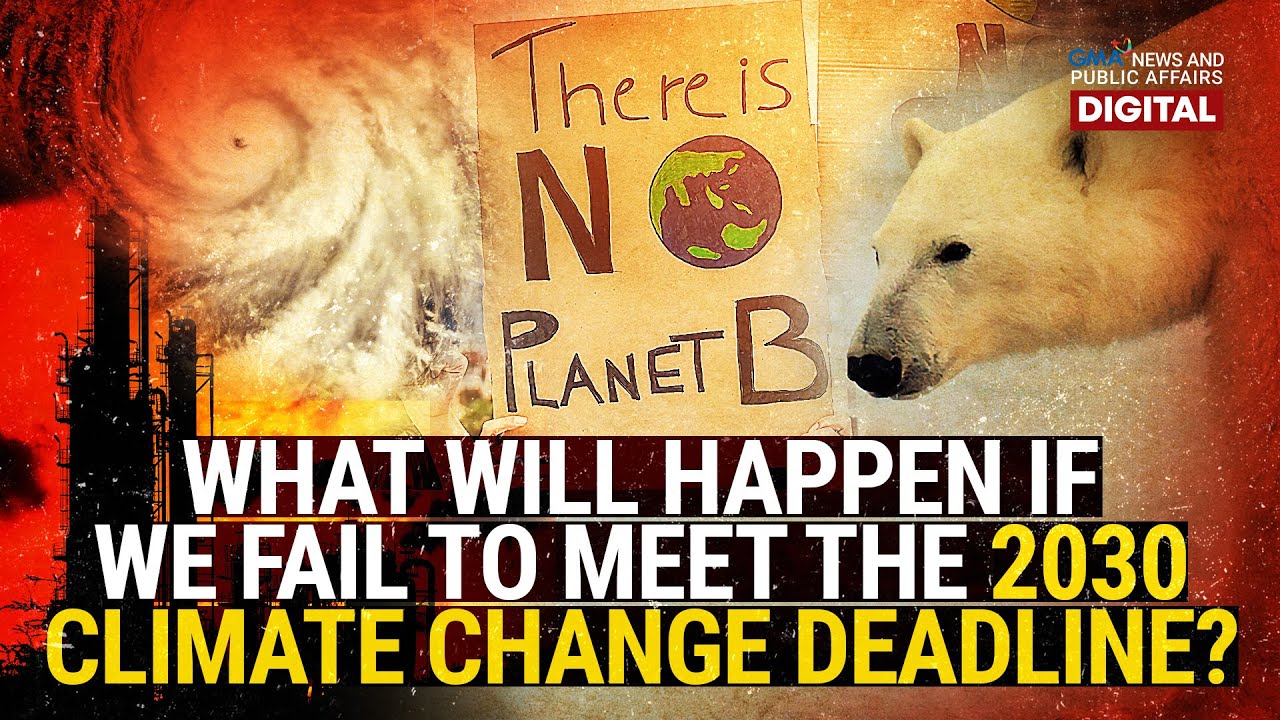English - Climate Change 2014: Mitigation of Climate Change
Summary
TLDRThe video script discusses the urgent need to reduce greenhouse gas emissions to limit global warming to 2 degrees Celsius. It highlights the rapid growth of emissions, primarily from fossil fuel combustion and economic expansion, and emphasizes the need for immediate action. The script explores various mitigation strategies, including renewable energy, carbon capture and storage, nuclear power, and energy efficiency improvements. It also addresses the challenges of policy implementation and the potential benefits of early action, such as avoiding reliance on risky technologies and co-benefits like improved health and reduced resource pressure.
Takeaways
- 🌍 Greenhouse gas emissions have been growing at an accelerated pace, primarily due to fossil fuel combustion in energy and industry sectors.
- 🌡️ To limit global warming to 2 degrees Celsius, substantial reductions in greenhouse gas emissions are necessary across all sectors.
- 🔍 The working group's focus is on exploring mitigation pathways and informing decision-makers about the associated costs, risks, and benefits.
- 📈 Emissions have shifted from industrialized countries to emerging economies and high middle-income countries post-1970s.
- 🏭 The production of goods and services contributes to emissions, with producing regions emitting more than consuming regions.
- 🌡️ Without additional efforts, global mean temperature could increase by about four degrees Celsius within this century.
- ⚡️ A complete transformation in the energy system, including new power plants and electricity infrastructure, is required to stop climate change.
- 🌳 A broad portfolio of technologies, including renewables, carbon capture and storage, nuclear power, and energy efficiency improvements, is needed.
- 🚗 The transport sector is already developing engines with low or no emissions and exploring new energy sources.
- 🏢 Urban redevelopment and infrastructure investments can significantly reduce energy demand through technical and behavioral measures.
- 🌱 In the building sector, improvements in building performance, energy efficiency, and cost reductions can facilitate retrofitting inefficient buildings.
Q & A
What is the primary cause of the increase in greenhouse gas emissions?
-The primary cause of the increase in greenhouse gas emissions is the combustion of fossil fuels in the energy and industry sectors, along with growing economic output.
What is the target for limiting global warming according to the script?
-The target for limiting global warming is to keep it to 2 degrees Celsius.
What is the role of population growth in the increase of greenhouse gas emissions?
-Population growth is an important driver of the increase in emissions, but its influence has remained roughly stable.
What does the script suggest about the shift in emissions from industrialized to emerging economies?
-Before the 1970s, most emissions came from industrialized countries, but since then, most emissions now come from emerging economies or high middle-income countries.
What does the script imply about the potential increase in global mean temperature without additional mitigation efforts?
-Without additional mitigation efforts, the global mean temperature could increase by about four degrees Celsius within this century.
What is the urgency regarding the reduction of greenhouse gas emissions according to the script?
-To stop climate change, global greenhouse gas emissions need to be cut in half by mid-century and further reduced after that.
What is the significance of the year 2030 in the context of emission reduction as mentioned in the script?
-The beginning of emission reduction before or after 2030 is a defining difference, with necessary emission reduction rates being about twice as high if mitigation is postponed until after 2030.
What are the challenges in adopting aggressive policies to reduce emissions as discussed in the script?
-The challenges include the complexities of designing and implementing policies, the speed and ease of adoption, and the associated costs.
What is the 'tragedy of the common' as it relates to the atmosphere and greenhouse gas emissions?
-The 'tragedy of the common' refers to the overuse of the atmosphere as a dumping ground for greenhouse gases, which costs individuals and nations little to do, but the harm is borne by people all over the world.
What technologies are mentioned in the script as part of a broad portfolio to reduce greenhouse gas emissions?
-The technologies mentioned include renewables, carbon capture and storage, nuclear power, energy efficiency improvements, and the transformation of almost all sectors.
What are the potential benefits of reducing greenhouse gas emissions beyond curbing climate change impacts?
-Potential benefits include reduced pressure on local resources, improved health through better indoor air quality, and co-benefits such as cleaner energy systems.
Outlines

Cette section est réservée aux utilisateurs payants. Améliorez votre compte pour accéder à cette section.
Améliorer maintenantMindmap

Cette section est réservée aux utilisateurs payants. Améliorez votre compte pour accéder à cette section.
Améliorer maintenantKeywords

Cette section est réservée aux utilisateurs payants. Améliorez votre compte pour accéder à cette section.
Améliorer maintenantHighlights

Cette section est réservée aux utilisateurs payants. Améliorez votre compte pour accéder à cette section.
Améliorer maintenantTranscripts

Cette section est réservée aux utilisateurs payants. Améliorez votre compte pour accéder à cette section.
Améliorer maintenantVoir Plus de Vidéos Connexes

What is the 'Paris Agreement', and how does it work?

Bisakah Kita Menghentikan Pemanasan Global?

The “myth” of the boiling frog

Peringatan Keras, Emisi Gas Rumah Kaca Capai Rekor

Klimawandel, Paris-Abkommen und das 2-Grad-Ziel in 3 Minuten erklärt

What will happen if we fail to meet the 2030 climate change deadline? | Need to Know
5.0 / 5 (0 votes)
